Canada might be more secular than it ever has, but it’s not nearly as secular as many think. The simple fact is while institutional religion has receded in some quarters, especially when it comes to liberal Christian denominations, it has not disappeared. The latest polling by the Angus Reid Institute (ARI) in partnership with Faith in Canada 150 indicates there is a strong element of religious faith in Canadian society. Canadians might not recognize or appreciate it as they once did, but the religious element is present. Faith matters to some degree for eight-out-of-10 of us. According to ARI, only 19 per cent of Canadians reject religious faith and would identify themselves as non-believers. Slightly more (21 per cent) are religiously committed. These people regularly pray, read a holy book or attend religious services. The rest are in the mushy middle, with about 30 per cent being what ARI calls “privately faithful” in that they adhere to a set of religious beliefs, but rarely enter a house of worship. Meanwhile, another 30 per cent are spiritually searching. While they haven’t embraced faith, they haven’t rejected it as non-believers have. At some level, faith matters to most of us. Given those general numbers, it’s no surprise that faith is also important to Canadians in terms of personal identity and worldview. Most respondents (52 per cent) told the pollsters that personal faith or religious beliefs were an important factor in how they thought “about public issues and problems facing society.” A full 54 per cent of us say we draw own personal identity from our faith and religious beliefs. That last point underlines an important truth: Religion goes far beyond customs, costumes and cultural trappings. It goes to the heart of who we are as people. And that means faith is not a part of ourselves that we can easily wall off in the cloisters of our private lives. Neither should we seek to do so. The poll provides more than just a snapshot in time of Canadians; it offers an impressionistic painting of sorts of Canadians’ attitudes toward the role of religious faith. When Canadians are asked abstractly about the role of religion on a national scale, 44 per cent say its legacy is a mix of good and bad. That compares with 35 per cent who see a positive role for it, and 21 per cent who see a negative role. However, Canadians take a different view when they think of practical examples of faith in their neighbourhoods. For example, on the question of healthcare, homes for the elderly and special needs programs, between one-third and one-half of Canadians see religious faith playing a positive role, compared to less than 10 per cent who see a negative one. Similarly, when it comes to caring for the marginalized and homeless, providing relief in disaster situations, or assisting in the settlement of refugees and immigrants, the proportion of those who express appreciation of faith’s role is anywhere between 31 and 50 per cent higher than those who are skeptical of it. The long and short of it is that Canadians are likely to see faith playing a positive, practical role where they work and live. Is Canada a secular state? Yes, and thankfully so. But is Canada a secular society? Hardly. Faith is a factor in the lives of most of us, even if it isn’t as strong a factor as it once was or is as uniformly expressed as in the past. What’s more, faith helps give the majority of Canadians personal identity and a lens through which to interpret world events. Canadians are also far more likely to see the good the religious faith provides in practical ways at the neighbourhood level. The numbers are clear. This is Canada. Faith matters.
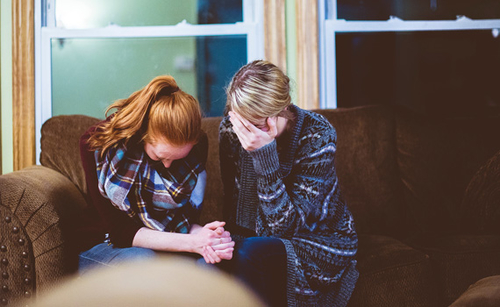
Percentages Indicate Faith Remains Important to Canadians
July 13, 2017
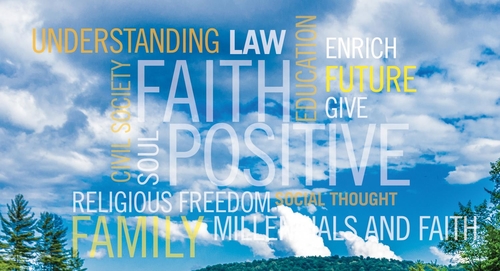
This is Canada. Faith Matters
For centuries, faith has shaped the human landscape of Canada. From literature and art to social infrastructure and social research, faith has and will touch almost every surface of this country’s past, present and future. What if faith was forgotten? What if we could no longer remember the importance of faith in how we live our lives, how we see our neighbours, or how we fulfill our social responsibilities? These are the questions Michael Van Pelt, President and CEO of Cardus, asked himself two years prior to Canada’s 150th anniversary. Cardus is Canada’s largest Christian think-tank dedicated to the renewal of North American social architecture. As a privately funded group, it parlays independent and original research into various aspects of social life including law, education, social cities, work and economics and family and health. For more than 40 years Cardus has served as a leader in both research and education while challenging public debate and producing publications. As a state, Canada claims to be officially neutral, supporting neither religion nor irreligion. As a society however, we are by no means secular. Van Pelt explains recent polling by Angus Reid shows that faith is more central to Canadians’ lives than many realize. Not only that, but “faith is central to improving the way people live and give of themselves,” says Van Pelt. No matter what the polling shows, the importance of faith in Canada was at risk of being washed away by an overwhelming sea of secularism. Official secularism of the state does not acknowledge the ways in which our values are informed by faith. In turn, society becomes desensitized to the positive role that multiple faiths play in Canada. In order to fill the gap in our cultural amnesia, Cardus felt an obligation to implement a project that would remind us of how close faith is to our country’s core. That project is called Faith in Canada 150. Greg Pennoyer at the FC150 GalaGreg Pennoyer, program director, said: “We knew that stories of people, places, events and experiences would be told and celebrated. We had a sense that the important role of religion and of people of faith would be forgotten in this storytelling.” Van Pelt regards Cardus’ role in leading the project as a requirement not a request. No other Canadian think-tank, or organizations applying the same line of thinking, have engaged in a project with the breadth and depth of Faith in Canada 150. Pennoyer has seen the project evolve from a single idea to a set of initiatives. He said: “It is an initiative with many projects and a vast community of religious leaders from all faiths working together to tell the story of, and celebrate, the place of religion in our life together.” The two foundational initiatives of Faith in Canada 150 are the Faith Alliance Network and the Cabinet of Canadians. Both these initiatives represent networks of the most senior leaders of faith communities with backgrounds in industry, political, religion, academia and culture. Pennoyer compares another one of the project’s initiatives, Thread of 1,000 Stories, to a tapestry. A tapestry is not made up of a few threads, nor is Canada composed of a few faiths. Thread of 1,000 Stories, illustrates this by producing a large collection of stories where ordinary Canadians are encouraged to link between faith and acts in their everyday lives. Van Pelt sais: “Through Faith in Canada 150 we are documenting hundreds of stories of faithful Canadians – from a wide variety of religious backgrounds – which we make public so that those moments of history are not lost.” These stories explore the types of celebrations that take place in one’s faith community, the kinds of philanthropic work they engage in and the meaning associated with practising faith in Canada. “Whether you’re talking about the work of Northrop Frye, a Jewish synagogue hosting an Iftar dinner for its Muslim friends, or a Baha’I contribution to the Truth and Reconciliation Commission, that’s all faith in action in Canada,” Pennoyer said. Millions of Canadians exhibit faith in everyday acts. Faith in Canada 150 is the thread that will stitch all of these stories together producing the narrative that faith is vital to Canada. While these stories highlight the importance of faith in our past and present, the Millennial Network and #Give150 display the project’s commitment to faith in the future. Michael Van Pelt with Dr. Angust Reid.Faith in Canada 150 is working to establish a national network of next-generation leaders from all sorts of faith communities. The Millennial Network initiative hosts a series of regional gatherings where next-generation leaders exchange ideas about faith in everyday life and receive guidance from members of the Cabinet of Canadians. Between June 28-30, Faith in Canada 150’s Millennial Summit brought together 75 Canadians here in Ottawa. When describing the event, Pennoyer said: “Delegates formed friendships across different faiths, and they gained confidence to be true to themselves and their faiths in public.” Knowing that higher levels of religious belief are closely connected to higher levels of charitable giving, Faith in Canada 150’s #Give150 initiative aims to reverse the decline of giving Canada has experienced in recent years. “By matching charitable donations — up to $150 recurring donations — we can help make giving a habit, not a reflex,” said Pennoyer. Faith in Canada 150 has made its mission to fulfill the following five commitments. Through initiatives like Thread of 1,000 Stories, Faith in Canada 150 has promised to celebrate the role of faith in the formation of Canada’s rich and diverse culture. The project will serve to remind Canadians of the contributions religion has made to our common life. It will tell stories from our country’s past that resonate through our present and towards our future. The fourth commitment — whereby there is a commitment to encourage and inspire communities of faith to greater participation of Canadian life is what guides initiatives like the Faith Alliance Network. Finally, Faith in Canada 150 vows to help build a network of leaders across private, public, religious and secular institutions who recognize and seek to nurture the place of faith. The project was not only a way to remind us of the importance of faith, but also a way to commemorate Canada’s 150th birthday. Celebrations around the nation were aimed at memorializing the nature of our country, all with a strong influence in affecting how we see ourselves. Van Pelt added: “Words change worlds. And if our words ignore the contribution of religious faith to Canada, we would write a troublesome story by marginalizing Canadians of faith, telling them they don’t matter.” Faith in Canada 150 ensures that faith is a part of the conversation during the 2017 celebrations, as well as affirming its central role in Canada’s story. Faith will not be forgotten. Not on our 150th anniversary. Not ever.
July 13, 2017
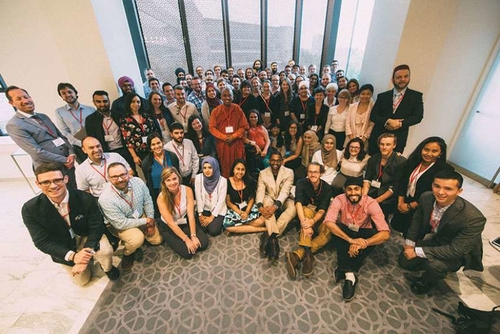
Millennial Summit affirms role of religious faith in Canada
OTTAWA – Faith has helped shape Canada for its first 150 years and there’s a youthful next generation that wants to make sure it is just as influential for the next 150. Young Canadians from many faith traditions met at the Millennial Summit on June 27-30 to affirm the role religion has played in Canada. They vowed to continue the work. In an open letter to Canada on the eve of the 150th birthday of Confederation July 1, the 75 delegates of the Summit wrote that they hoped “Canada’s next generation of faithful leaders will move beyond tolerance to cultivate a more vibrant expression of pluralism, founded in the resolution to live peaceably in diversity.” “Such genuine pluralism admits both public and private expressions of faith even when our beliefs differ from one another and disagree,” the letter said. “We affirm that we desire a genuine respect for the inherent dignity of the human person regardless of what faith or non-religious belief they profess.” The millennials, born between 1980 and 2000, were represented at the Summit by young leaders from Christian, Muslim, Jewish, Sikh and other religious traditions. The Summit was part of Cardus’ Faith in Canada 150 project “I was struck by the generosity of spirit that was present, that each brought to the table,” said Hannah Marazzi, 24, who has been the Millennial Summit’s project lead since January and will continue working out of Cardus’ Ottawa offices. “I was also struck by the high degree of relational presence,” said Marazzi, who is originally from Abbotsford, B.C., and a member of the Mennonite Brethren Church. “Individuals took care to share very articulately from their respective traditions and retained a sense of devotion yet also a posture of openness to the other delegates.” Delegates attended six seminar-style sessions during the Summit, each addressing questions regarding faith and pluralism in a Canadian context and led by Cardus’ Cabinet of Canadians, a multi-faith group of religious leaders chaired by former Religious Freedom Ambassador Andrew Bennett. The themes of the sessions covered questions such as the role of faith in public life, the importance of religious freedom and the nature of true pluralism, Marazzi said. Daniel Richardsen, 31, a former Anglican who grew up in India and Brunei before coming to Canada in 2004, called the Summit “an amazing first step towards real multi-faith dialogue.” “I think all of us felt a sense of relief that we didn’t have to conceal that part of who we are, and not be awkward about it,” said Richardson, who is now a Catholic. “We could be ourselves, not trying to convert each other.” He believes millennials are “wired differently” because so many grew up in unstable family circumstances and have a “deeper sense of longing for stability, for things of substance.” “There’s less tolerance for the casualness of previous generations,” he said. Consequently you see more “radicalism” in terms of commitment and “desire for more traditional forms.”
July 13, 2017

Canada celebration brings Millennials to a faith summit
Canada recently celebrated its 150th anniversary of the confederation of four provinces to form one nation. To mark the occasion Cardus, a Christian think tank, held a faith summit for Millennials in the federal capital, Ottawa. Judging by the video below (one of several on Cardus' You Tube channel) it was a teriffic event, attended by dozens of young adults from a wide range of faith communities. https://youtu.be/20O0sMzgJUY Two of the organisers talked about what their faith meant to them in this 9-minute interview on CBC radio -- also very impressive. This is an idea that should catch on.
July 7, 2017

Bursting the universal daycare bubble
There's been a push for a universal daycare system in Canada for 40 years. All that time, it's been called a "crisis." Now, federal Families, Children and Social Development Minister Jean-Yves Duclos promises we'll get there "eventually." Frankly, if we never do, it will be a decided win for families. This so-called crisis has only ever been one to a thin minority of activists — which is precisely why we don't yet have a universal system. Those who bemoan the lack of a universal institutional daycare system do so on different grounds: it gets mothers of young children working, it helps boost union membership, and — for big business — it creates more workers. In short, those lobbying for a universal system make up an unholy alliance of left and right — and very little of it has anything to do with actual benefits to children. In reality, no research shows that a plurality of children in a country benefit from access to universal institutional daycare. Rather, the opposite is true — there are benefits to targeted programs, which is precisely what the federal government now proposes. Universal daycare supporters generally cite an influential study done in the 1960s in Ypsilanti, Mich., to bolster their claim. The Perry Preschool Project worked with about 58 children for 2.5 hours a day. The child-to-adult ratio was six to one. These were at-risk children whose homes the researchers visited once a week, spending time with the mothers. Tracking the results into the long term, the children who participated in this particular intervention outperformed those who did not. Were we to follow the example of this research, we would have half-day, targeted, small-scale programs for disadvantaged children. The application of this study for a Canada-wide system is so remote as to be irrelevant. Duclos may in fact be aware of the research showing adverse affects from universal systems like Quebec's. Peer-reviewed studies have shown detrimental outcomes for kids there. Behavioural problems among children have risen. The authors of a 2006 study wrote that children "were worse off in the years following the introduction of the universal child care program." They continued: "We studied a wide range of measures of child well-being, from anxiety and hyperactivity to social and motor skills. For almost every measure, we find that the increased use of child care was associated with a decrease in their well-being relative to other children." Mothers also fare poorly. When parents must use daycare (because it's the only funded option), the family experience is limited to getting up early, taking children to care, rushing to pick them up only to feed, bathe and pack them into bed, then getting up early the next morning to do the whole thing again. Meanwhile, increasing costs of daycare are the result of government meddling. When Ontario moved to full-day kindergarten, it pulled three- and four-year-olds out of daycares and into schools. Those older children were used to subsidize the care of younger children, who are more expensive to care for. Many daycares went under, while others increased rates. Good daycare, regardless of who pays for it, is expensive. It's politics, some will say, that we don't yet have universal daycare. That's a different way of saying voters don't want it. This is true. If you ask Canadians what they prefer for a child under six, a strong majority will say it's best that children be at home with a parent. Yet we know many parents must use daycare. Those who struggle to find care generally do, whether it be in a centre, with family or in a neighbour's home — the latter two types of daycare being the kind activists don't appreciate because they can't be easily unionized or regulated. A universal system is an expensive solution in search of a problem. If we never get beyond targeted interventions, Canadians should be thankful.
July 5, 2017
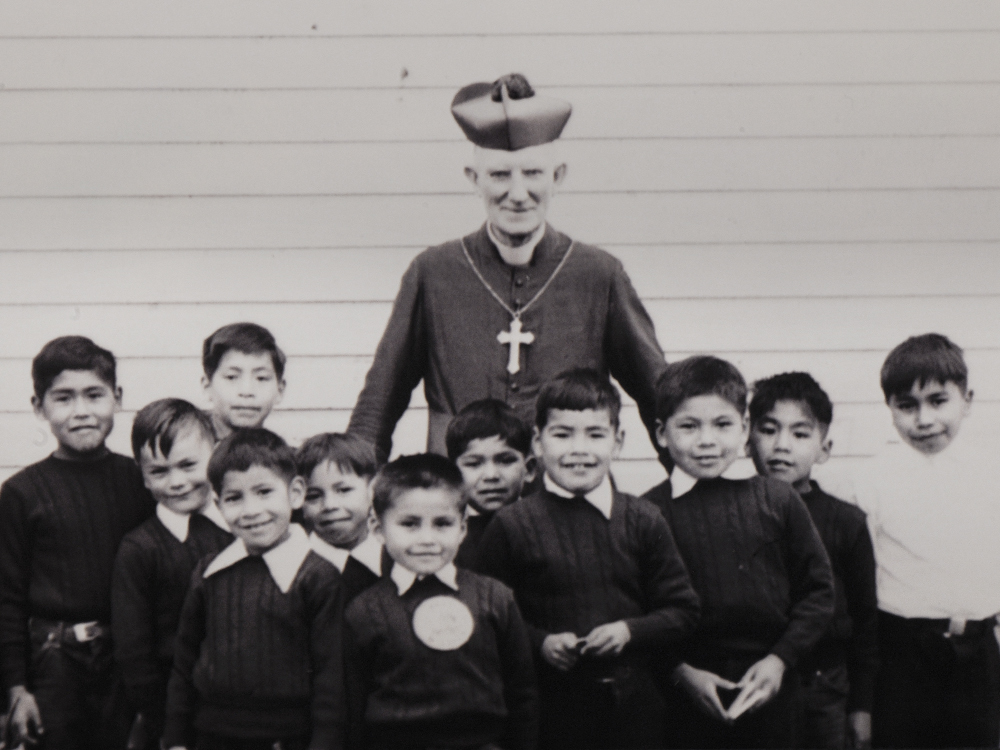
Residential schools seen as ‘major black mark’ in Canadian religious history: poll
"There is consensus on this issue and the fact that it is a dark chapter of our history that we need to own," said Ray Pennings of the think tank Cardus.Click here to read the full article.
June 29, 2017
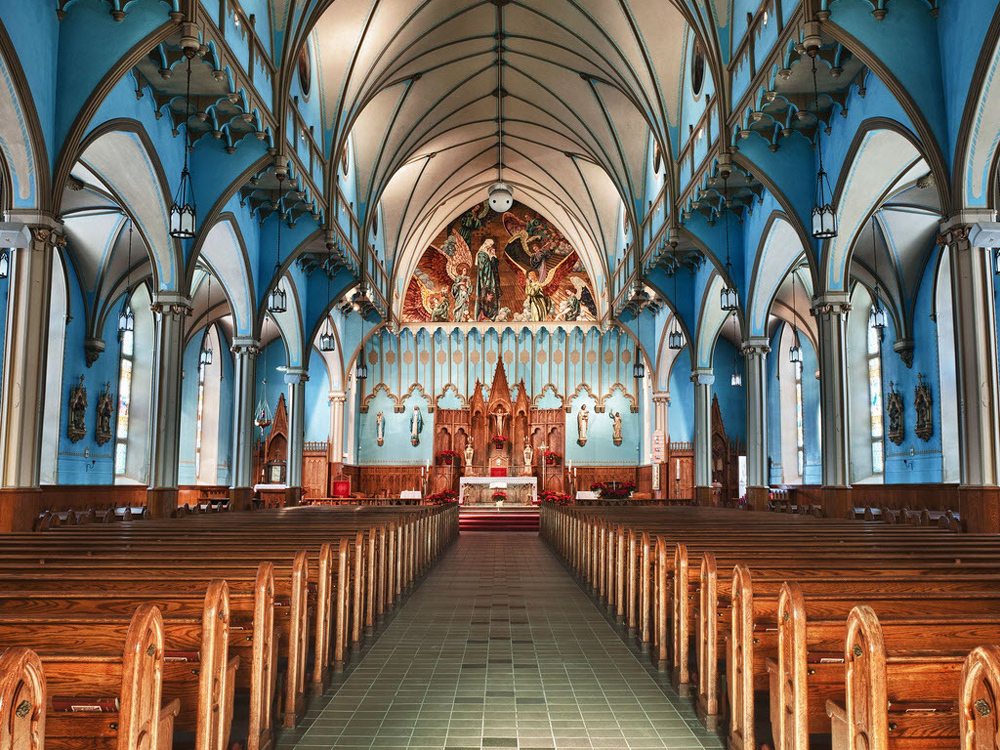
Ray Pennings: Don’t overlook the contribution faith has made to Canada’s first 150 years
The prevalent Canadian story is one in which faith is relegated to the margins, writes Cardus Executive Vice President Ray Pennings, and many lie in the mushy middle when it comes to faith, but religion has left an imprint on our lives, neighbourhoods and institutions.Click here to read the full article.
June 29, 2017
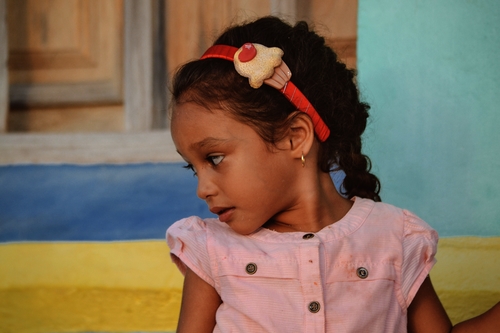
National Viewpoint – Bursting the universal daycare bubble
To read the full article in the Brandon Sun, click here.
June 29, 2017
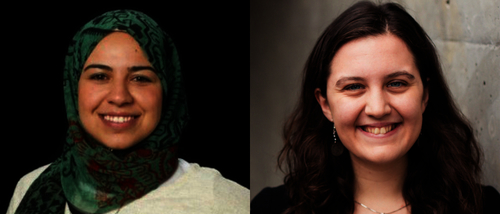
Millennials and Faith: Video Interview
https://www.youtube.com/watch?v=Z5pCJRAPtZs&feature=youtu.be
June 29, 2017
